-
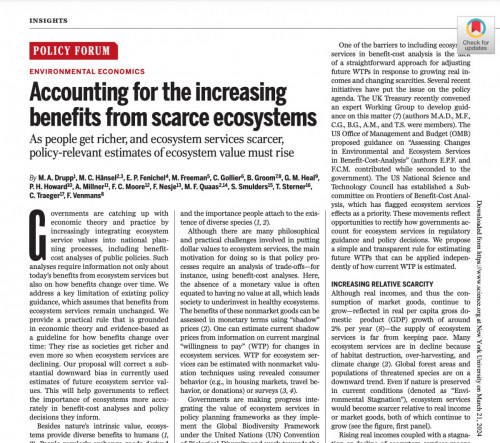
Accounting for the Increasing Benefits From Scarce Ecosystems
As people get richer, and ecosystem services scarcer, policy-relevant estimates of ecosystem value must rise
Governments are catching up with economic theory and practice by increasingly integrating ecosystem service values into national planning processes, including benefit-cost analyses of public policies. Such analyses require information not only about today’s benefits from ecosystem services but also on how benefits change over time. We address a key limitation of existing policy guidance, which assumes that benefits from ecosystem services remain unchanged. We provide a practical rule that is grounded in economic theory and evidence-based as a guideline for how benefits change over time: They rise as societies get richer and even more so when ecosystem services are declining. Our proposal will correct a substantial downward bias in currently used estimates of future ecosystem service values.
-
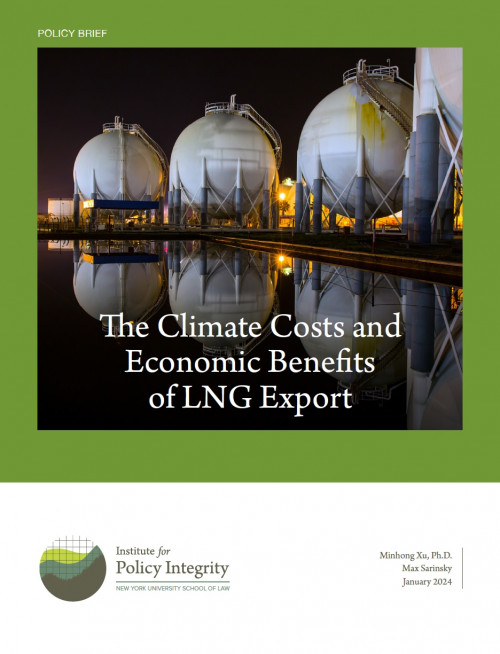
The Climate Costs and Economic Benefits of LNG Export
Gas provides nearly a quarter of the world’s total energy supply. As part of that supply chain, gas is shipped between continents in the form of liquefied natural gas (LNG). The United States is now the world’s largest LNG exporter following a surge in gas exports since 2016, but these exports have generated controversy due to their climate effects.This policy brief provides an analysis to support an effort to balance the full range of impacts from LNG exports. Using DOE’s own published studies, we compare the climate cost per unit of LNG export to the economic benefit (measured using consumer welfare). We find that climate costs likely exceed economic benefits. While the precise difference depends on several factors, gross climate damages greatly exceed economic benefits under all scenarios evaluated. These findings provide useful insights as DOE prepares to re-evaluate the LNG export program.
-
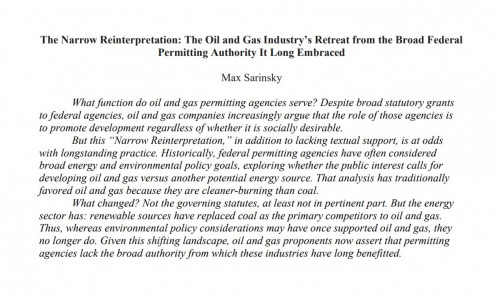
The Narrow Reinterpretation
The Oil and Gas Industry’s Retreat from the Broad Federal Permitting Authority It Long Embraced
What's the function of oil and gas permitting agencies? Despite broad statutory grants to federal agencies, oil and gas companies increasingly argue that the role of those agencies is to promote development regardless of whether it is socially desirable. But this “Narrow Reinterpretation,” in addition to lacking textual support, is at odds with longstanding practice. What changed? Not the governing statutes, at least not in pertinent part. But the energy sector has: renewable sources have replaced coal as the primary competitors to oil and gas.
-
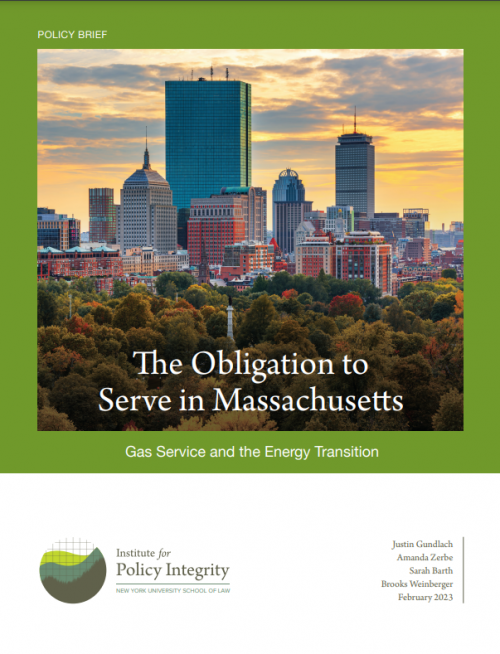
The Obligation to Serve in Massachusetts
Gas Service and the Energy Transition
In Massachusetts, achieving the state’s decarbonization target in a cost-effective manner will likely require the refusal of new gas service in addition to the termination of existing gas service in certain buildings and its replacement with electric service. The scope of utilities’ legal obligation to serve their customers will be central to those efforts. This brief analyzes the contours of this obligation by examining the relevant Massachusetts statutes, regulations, Public Utility Commission decisions, and case law.
-
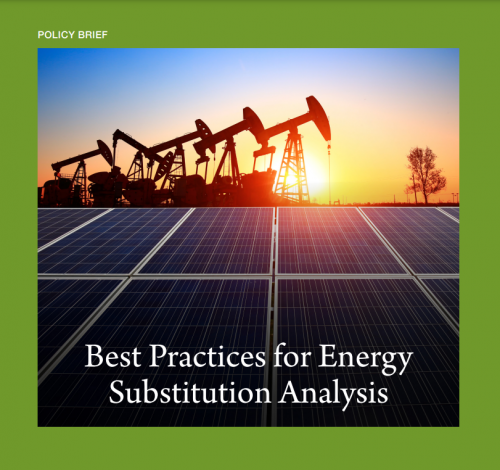
Best Practices for Energy Substitution Analysis
In recent years, numerous federal agencies have made a controversial claim: that projects locking in fossil fuels over the long term will decrease aggregate greenhouse gas emissions, or that their effects on total emissions will be limited. In many of those cases, however, agencies have reached this counter-intuitive conclusion using a flawed consideration of energy substitution. This report identifies some of the recurring problems with agency analysis of energy substitution and offers best practices to apply moving forward.
Viewing all publications in Natural Resources
